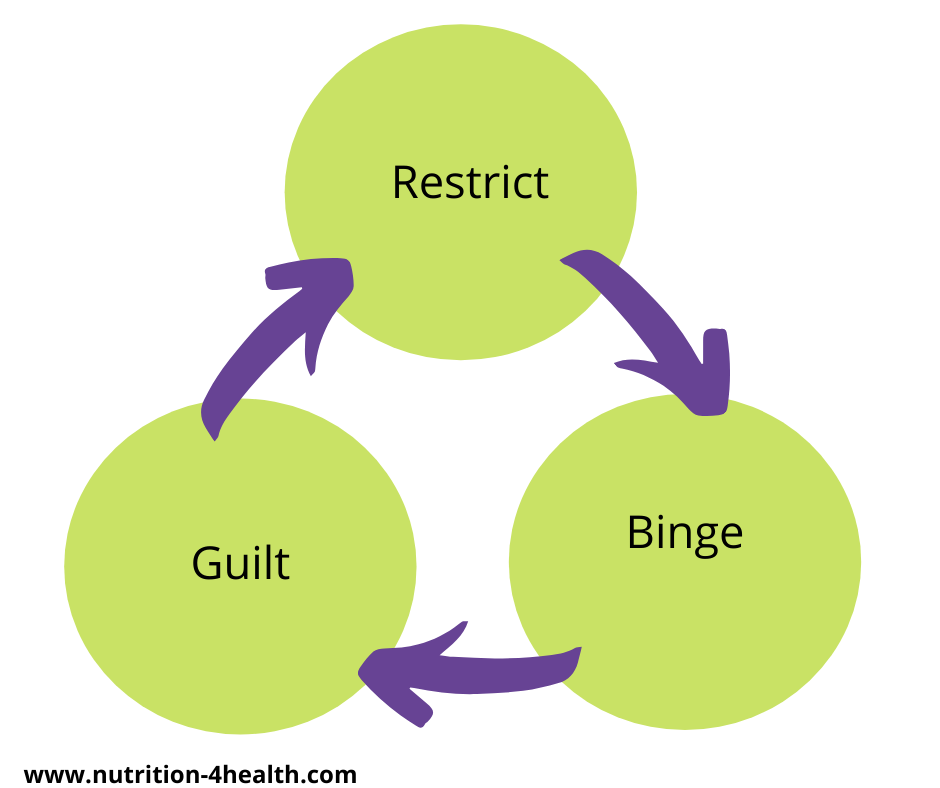How do you get over a binge?
A healthy approach to eating focuses on tasting, guilt-free eating, and focusing on fitness and energy, rather than on weight and calorie counting. The food that we eat must have a balance of taste and nutrition.
Fortunately, there are a variety of techniques you could use to reduce binge-eating episodes, both at home and with the help of a professional.
What is the role of food for you?
Food has a significant role in cultural heritage and national identity. It has the ability to connect us to people and places, bring friends and families together, and eating habits, are different to all of us.
Is food making you feel better and filling your emotional needs rather than your stomach?
Unfortunately, emotional eating doesn't fix emotional problems. In fact, it usually makes you feel worse. But eating the right food might help.
What do you crave?
Is food taking over your life?
Does emotional eating sabotage your weight-loss efforts?
Is it the only comfort you have in life?
Are you tired of constant dieting and “eating your feelings”?
Do you feel like you never get better?
Or maybe food is a form of emotional expression for you - and you are "hungry for feelings"?
The energy of your thoughts and emotions is transformed into concrete information that reaches every tiny cell of your body. Living on the run, high levels of stress make us lose connection with our body and confuse hunger related to food with hunger-related to the satisfaction of psychological needs.
Stress takes many forms: emotional or physical stress or it can be caused by internal factors (e.g. hormonal disorders, toxins, inflammation) or external (e.g. work, overeating, caloric restriction, nutrient deficiency).
Stress has many faces. If it is short-term, it can have a positive effect on us, motivating us to act, long-term one has a negative effect on our entire life.
During a stress response, the brain receives a distress signal and activates the hypothalamus to produce the CRH hormone called corticoliberin. The adrenal glands are stimulated to produce cortisol - well known as a stress hormone. In response to a stressor and preparing the body for a fight and flight, the body produces glucose (sugar). When the stressful situation is over, glucose levels should return to balance.
What are you hungry for?
Find out the cause and get to the root cause of your emotional eating. Take the quiz and discover if you are an emotional eater.
After completing the quiz, you will receive personalized feedback about where you are right now and what step you can take to improve your relationship with food.
What happens to the body when the stress is chronic?
Be aware that repeated episodes of stress can cause severe changes in your blood sugar levels, increasing your risk of hypoglycaemia (low blood sugar). When the stressful situation is over, your body (and especially your brain, which is very sensitive to glucose fluctuations), "looks" for food. It could be one of the patterns that you make about your emotional approach to eating.
As a practitioner using Eating Freely™ NT approach, I work with clients struggling with Binge Eating Disorder, Bulimia and Serial Dieting. I can help you to improve your diet, lifestyle habits and your relationship with food if you are ready to do so.
I understand your feeling of guilt, anxiety, depression and loneliness after over-eating.
If you've tried self-help options but you still can't control emotional eating, consider nutritional therapy to help you to improve your relationship with food, regain health and thrive in life!
Make peace with food… and ultimately yourself.
Find out how emotional eating can sabotage your weight-loss efforts, and get tips to control your eating habits. Discover how you see food reflects how you see yourself, your life, your family.
The greatest gift you can give to yourself and to your loved ones is to heal your own relationship with food.
“The best way to eat is one that makes you feel healthy & happy.”


